Do all bedroom light fixtures need to match? The dos and don'ts of mixing and matching lights
Follow our definitive guide to mixing and matching your light fixtures to ensure a lust-worthy bedroom

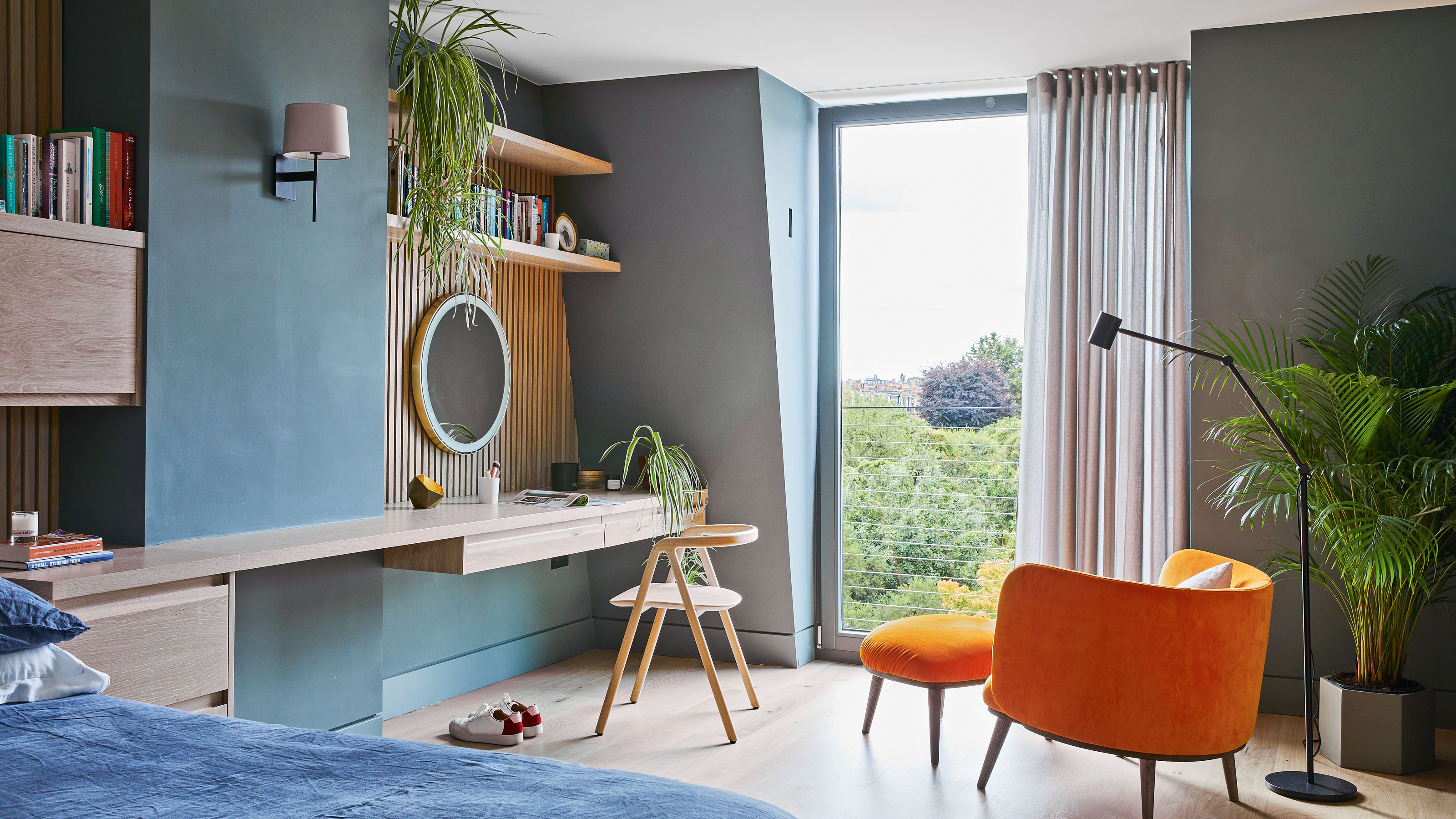
When adding lights into your bedroom there are a few queries that are bound to crop up – 'what types should I buy'?, 'how many do I need?', and also, what we're dealing with here, 'do all bedroom light fixtures need to match?'.
In years gone by, your bedroom lighting ideas would be based on choosing which 'range' you loved most from your favourite brand, then buying the whole set. Your bedside lamp would match the wall lights that matched the ceiling light and so on.
But these days, you can have a lot more fun with your bedroom lighting choice, so in short, the answer is no, all bedroom light fixtures do not need to match. Read on and we'll explain how to make the mis-matched look work for your space, with industry experts sharing their advice too.
The rules to follow when mixing and matching light fixtures
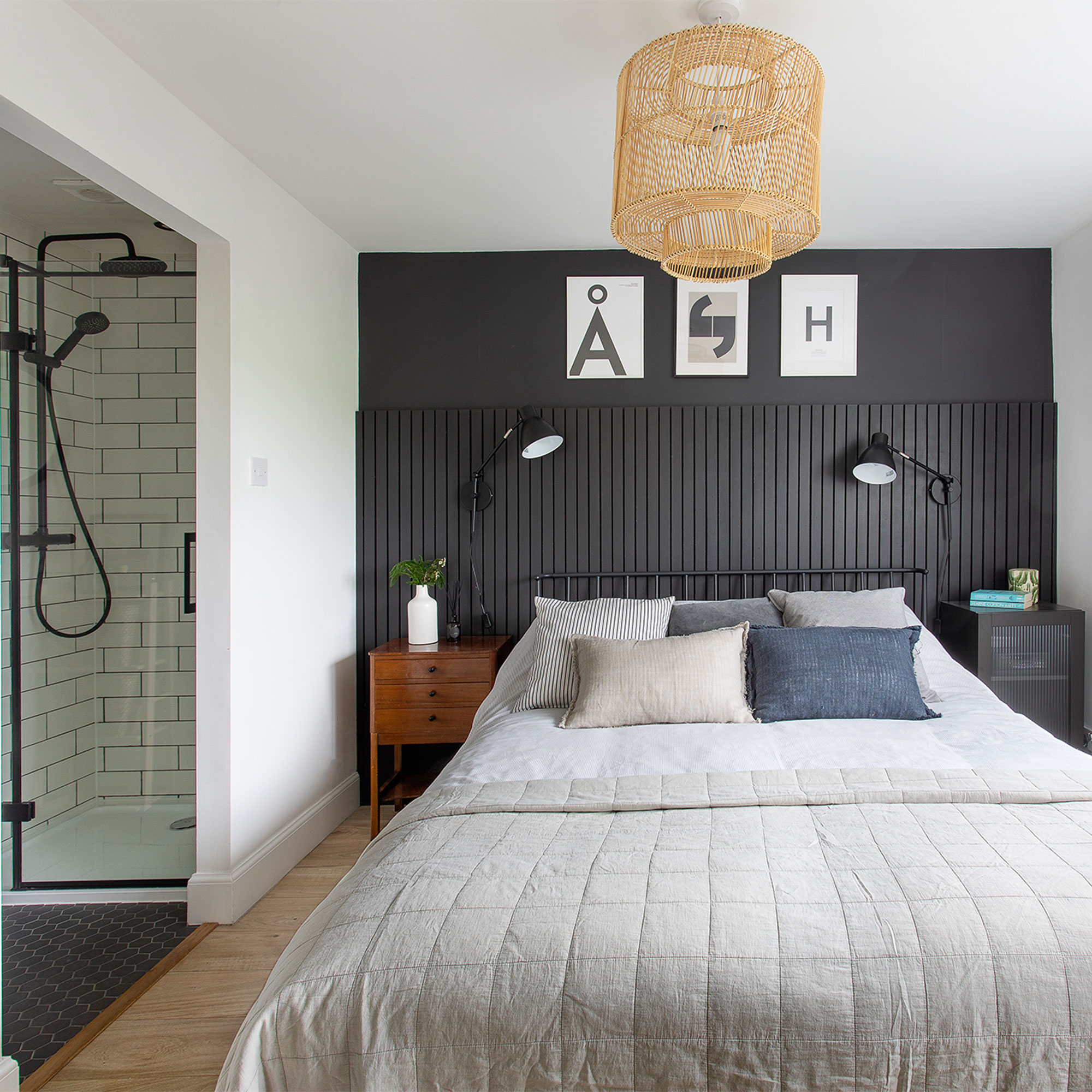
'When it comes to lighting fixtures and fittings in a bedroom - or anywhere else for that matter, they don’t all need to be matchy-matchy,' says interior stylist and founder of InsideStylists.com, Emma Morton-Turner.
'Gone are the days where you want an overhead pendant light with matching lampshades on your bedside tables. The style where everything looks like it came from the same shop is very outdated.'
Claire Anstey, lighting buyer at Heal’s agrees. 'There has been a definite movement away from matching bedroom wall lamps, pendants, and table lamps, which can feel a little hotel-like. Rather than looking for uniform pieces, I would recommend co-ordinating lighting with the overall room décor to achieve a cohesive and considered look.'
But before you rush out and buy your entire Pinterest board of lighting ideas, you need to know how to tie your lighting together somehow, so your bedroom looks more chic than shabby.
Sign up to our newsletter for style inspiration, real homes, project and garden advice and shopping know-how
Luckily, we've got you covered...
1. Think about your lighting needs
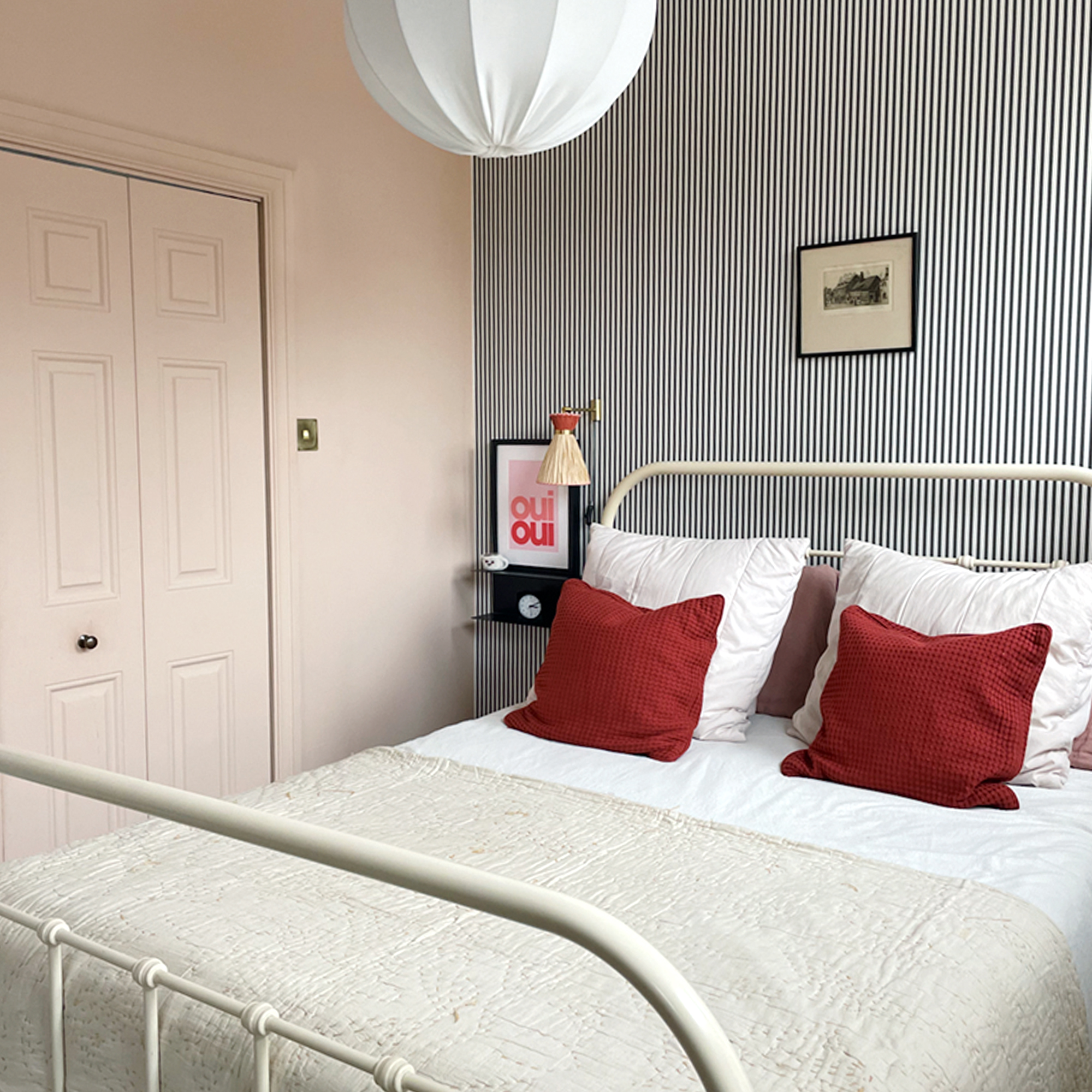
Your first port of call, before even pondering do all bedroom light fixtures need to match, should be to make a clear plan of your lighting needs.
'Functionality should be the main priority,' advises Claire from Heal's. 'For example, large, dramatic lamps next to the bed might look impressive, but if you have small bedside tables cluttered with essentials like books, a phone, and a glass of water, they can prove to be impractical.'
'In such cases, understated wall lamps can be a stylish and space-saving alternative, allowing you to instead make a statement with the central bedroom ceiling fixture.'
'If you enjoy winding down with a good book, instead consider directional light sources on either side of the bed,' continues Claire. 'The goal is to create an intentional scheme that feels natural, rather than overly curated.'
Emma agrees than you need to consider both flair and function. 'When it comes to styling a bedroom I look for elements that are going to work in a stylish as well as practical way.'
'Bedside lights are probably one of the most functional in your whole home. They need to be bright enough to read in bed - but not too bright. Soft enough to cast a warm glow in the evening and set a relaxing atmosphere when it’s time to wind down. So they need to look good and work for your needs.'
2. Plan your lighting positions
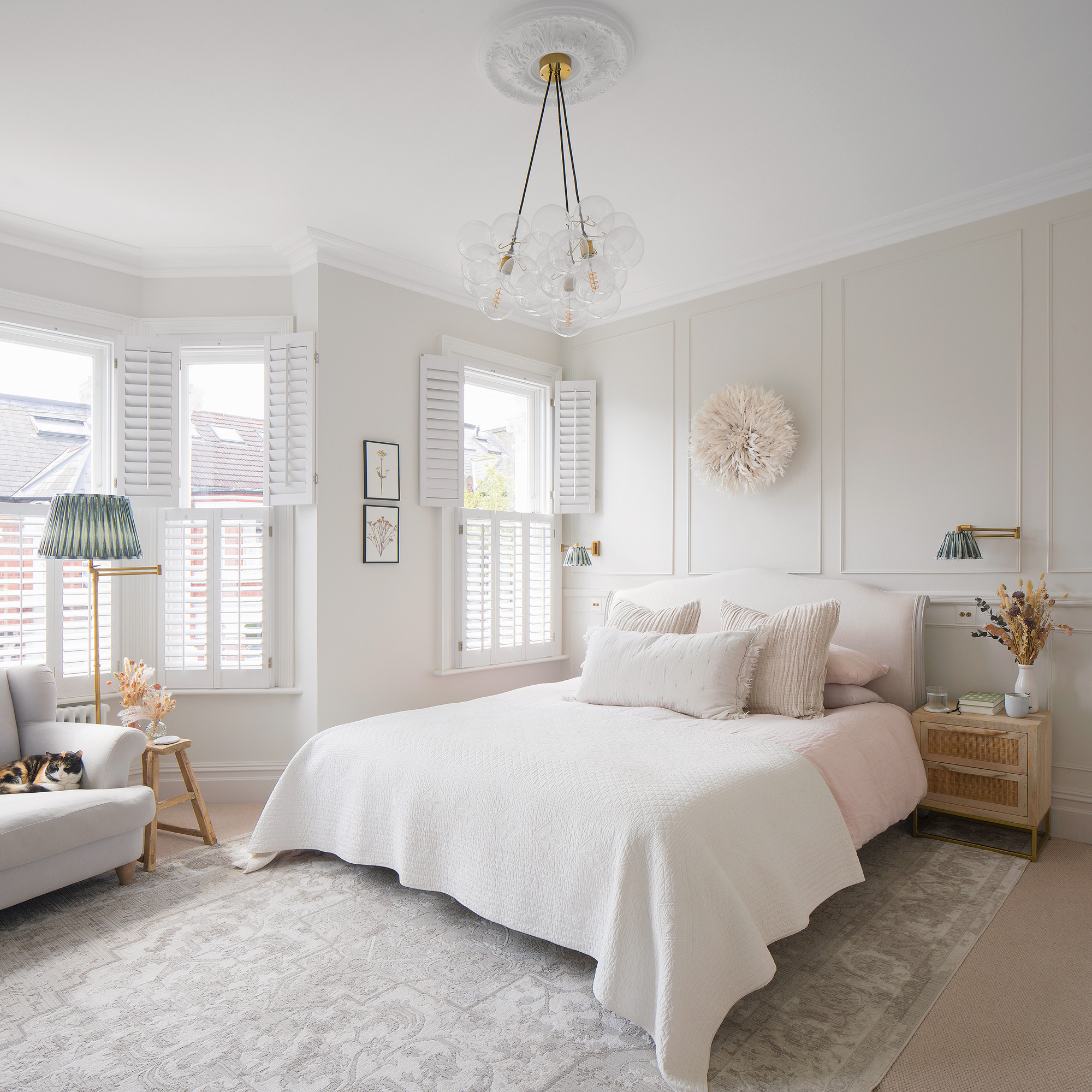
Next you'll need to plan out where your lights are going to be positioned within your space.
'The first thing to get right is the scheme, e.g. where to locate the central pendant, bedside reading lights, wall lights, table lamps and any recessed spot lights,' says Simon Wallis-Smith, director at Fritz Fryer Lighting. 'I'd advise not to locate recessed spot lights directly above the bed so as not to blind you, but I would locate the central pendant over the end of the bed to allow for a greater drop.'
'You'll also then need to consider how they are all to be controlled, as you don't want to be having to hop out of bed to turn the main lights off or indeed keep you partner awake when reading late at night. Once you have the scheme in place you can then look at the fittings.'
If you love the idea of hanging pendant lights by your bedside, don't forget you can cheat this look by making a feature of the flex cord and plugging them into sockets at the base of your wall, and hanging them from hooks or brackets.
Although pendant lights are often wired directly to the ceiling, if you're renting or don't have the budget for an electrician, this is a great hack for achieving this smart look.
3. Stick to one design theme
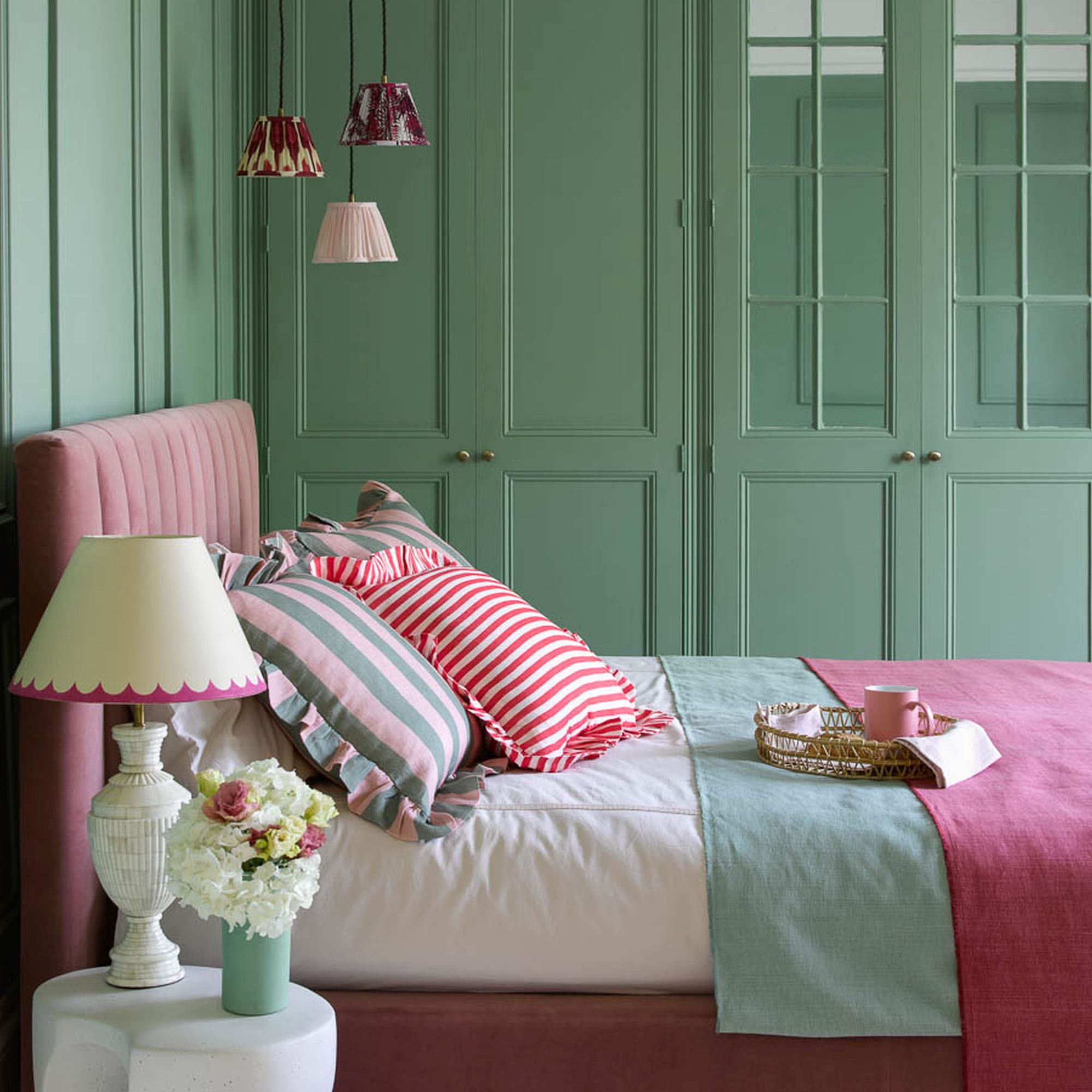
Once you've planned what bedroom lights you need and where you're going to position them within your bedroom layout, you can start having fun selecting your light fixtures.
'If you want to add different lights in one room, the key is to stick to one design theme,' suggests Emma. 'That could be a colour choice, texture or style.'
'If you choose lamps with fabric lampshades, you can select the same shape lamp bases in different colours and add the same shape lampshades in different patterns too - just keep the hues in the same palette to make this look work.'
'Or maybe you want to have adjustable or moveable lights by your bed like an Anglepoise or desk light, so you can direct the light wherever you need it. A pendant light would be a completely different style to a desk light but if you keep to similar design styles - say they are both modern with chrome details, the look will be seamless.'
4. Choose a common link for a more cohesive look
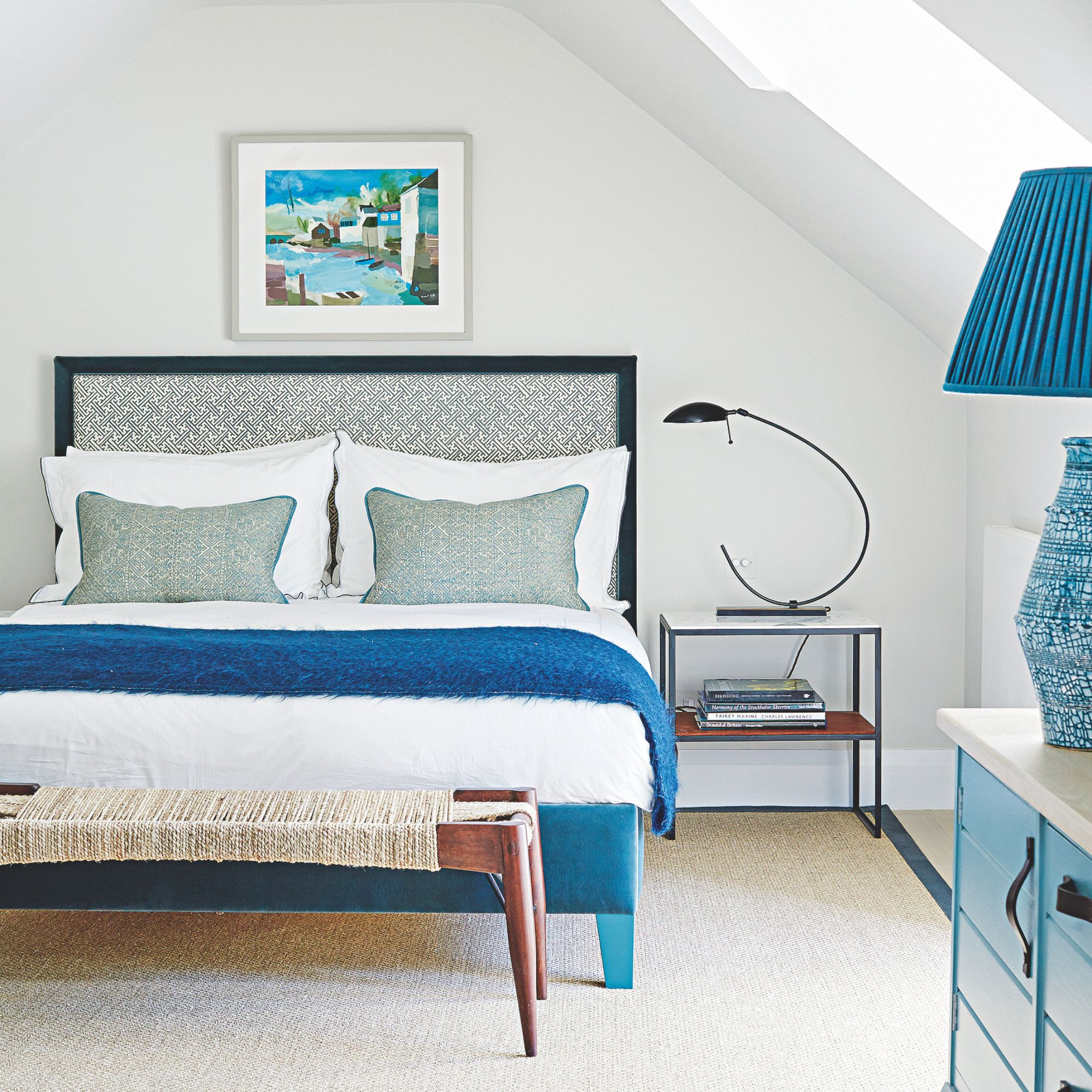
If you want a look that feels a little more slick, but still not matching, interior stylist Joanna Thornhill explains how to achieve this. 'The key to making your mis-matched bedroom lighting feel considered, is to ensure there’s a common element linking everything together,' she says.
'That could be repeating the same metal colour in ceiling roses or arms, using the same style of lighting flex, or opting for a similar shade shape. This way, you can shop from different brands (rather than restricting yourself to a set range from one retailer) and get a bit more experimental - for example, using two different metal tones if your uniting element is the shade shape.'
'However, if you are going for an eclectic, mismatched look, I’d always choose matching bedside lights, otherwise it can look unbalanced,' says Joanna. 'Where possible, I'd also try to include your light switches and power sockets into your scheme, too, by opting for designs which replicate one of your key metals or colours.'
If you want things to have continuity, then pick a metal finish that matches across all the fittings,' agrees Simon.
5. Don't forget about creating the perfect glow
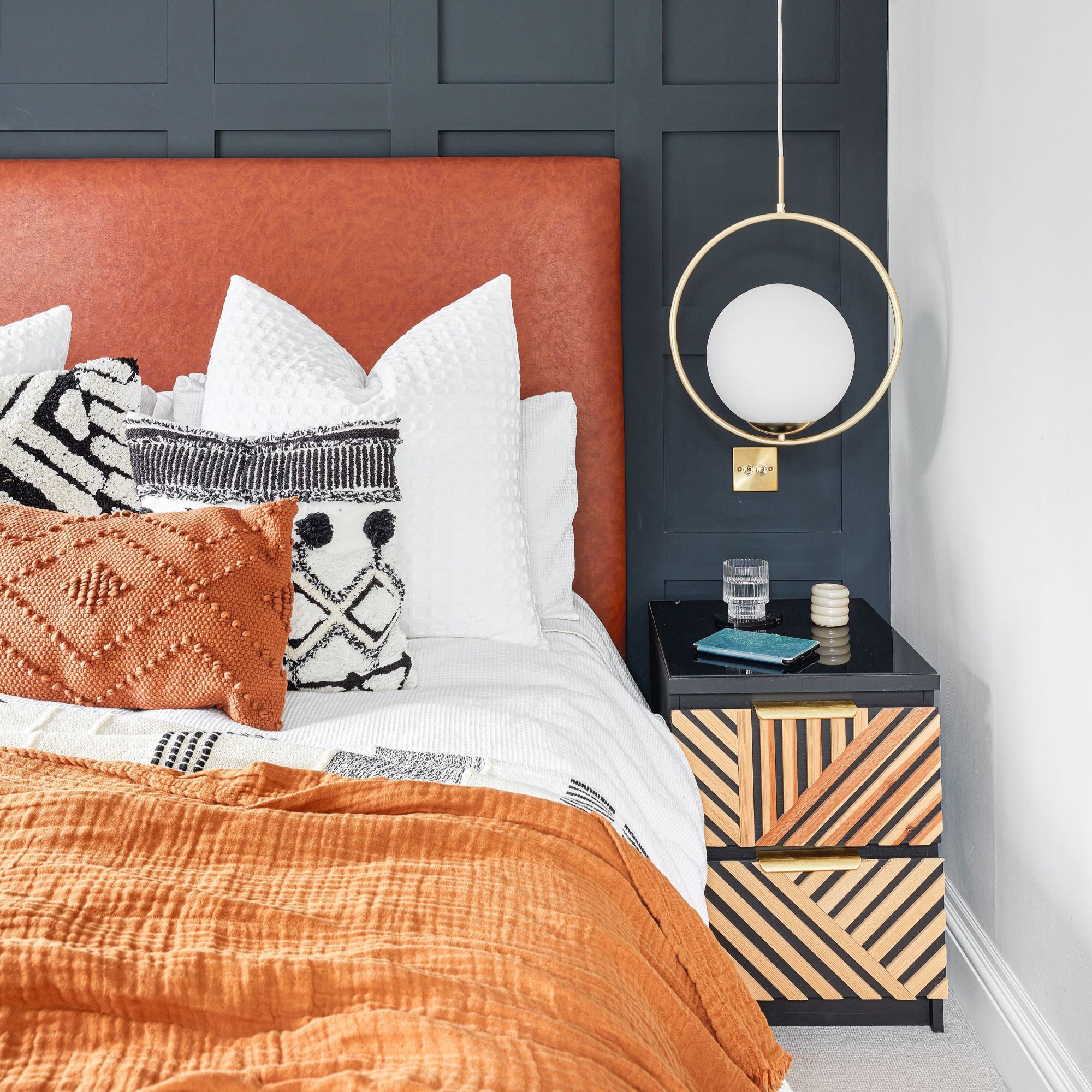
Once you're happy with you chosen light fixtures, it's important you select the right light levels to ensure your bedroom has a cosy glow.
'The bedroom should be your personal sanctuary', says Claire. 'When it comes to lighting, the most important consideration should be to create a scheme that promotes relaxation while catering to your individual style and practical needs.'
'This can be easily achieved by layering different elements to achieve the perfect level of illumination from dawn to dusk. Focused task lighting can be ideal when reading before bed or getting ready in the morning, while accent lighting can gently highlight darker corners of the room as you wind down for sleep.'
Lighting temperatures have a big part to play, too, when you're looking to add warm lighting to your bedroom. 'The ideal temperature of light is around 2700 Kelvins, providing a warm glow akin to candlelight, which is perfect for winding down and promoting relaxation,' explains Claire. 'Cooler temperatures (4000K and above) on the other hand, carry blue undertones, which can disrupt the production of melatonin and interfere with the body’s natural circadian rhythm.'
'I would suggest avoiding exposed bulbs or overly bright LEDs, as these can be harsh on the eye and counterproductive to relaxation. Instead, softer lamp shades in materials such as natural linen or frosted glass, will cast a more gentle, calming glow.'
'You may also want to consider dimmers for main overhead lights, allowing you to brighten the space when necessary, or keep it to a lower level for a more comfortable, cosy atmosphere.'
FAQS
Can you mix and match light fixture colours?
'While there are no strict rules, I would recommend coordinating your lighting fixtures through common elements like colour, texture, or material to maintain a harmonious feel,' suggests lighting buyer for Heal's Claire Antsey .
'Mixing styles can create a wonderfully eclectic look, provided there is a unifying element tying them together.'
'Most importantly, choose lighting that resonates with your individual style and personality. After all, it will be among the last things you see at night, and the first thing you notice in the morning!'
'If you really want everything to feel cohesive when the lighting has different colours, you need one thread running throughout it all,' adds stylist Emma Morton-Turner. 'You can do this really easily with fabric lampshades. Select one colour trim that goes with all the lampshades and edge the top and bottoms to create a link to each element. This can be subtle - so a cream based fabric could have a cream trim, or it can work for a bold colour and patterned fabric too.'
'A mix of brightly patterned fabric lampshades can have one bright contrasting colour trim running through each shade. The common theme in the trim is what will make this look work. You could even match a flex cord in the same colour as the trim.'
So are you sold on opting for mis-matching bedroom light fixtures in your home?

Holly Walsh is a freelance Interiors Writer and Shopping Editor, but worked in-house here at Ideal Home for nearly 10 years. With a background of studies in Interior Design, her career in interior journalism was a no-brainer and her passion for decorating homes is still as strong now 15 years after she started, as it ever was. While Holly has written for most of the home titles at Future, including Livingetc, Country Homes & Interiors, Homes and Gardens, Woman & Home and Style at Home, Ideal Home has always been her ideal home, and she can still be found sharing her expertise and advice across both the printed magazine and the website, while also raising her two young children.